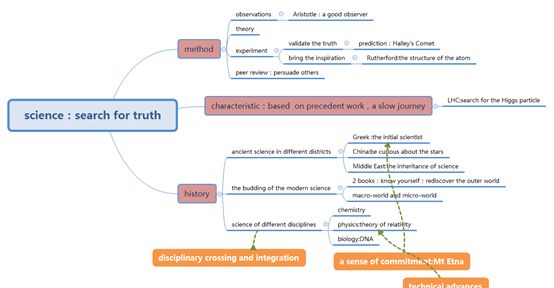Day1
ongoing
continuing to exist, happen, or progress:continuing without reaching an end
e.g.ongoing efforts to find a cure for the disease.
pick holes
1.找漏洞
2.挑毛病;挑刺儿;找茬儿;find fault。 I'm sure he could pick holesin your argument.
falsify
to prove or declare false:disprove
to make false by mutilation(切断,损毁) or addition:He was caught falsifying financial accounts.
speculative
1:involving, based on, or constituting intellectual speculation;also:theoretical rather than demonstrable<speculativeknowledge>推理的
2:marked by questioning curiosity:speculativeglance揣摩的
3:of, relating to, or being a financial speculation<speculativeventure>投机的
deflection
1:a turning aside or off course:deviation偏斜
2:the departure of an indicator or pointer from the zero reading on the scale of an instrument偏移
foil
1:very thin sheet metal
2.to prevent from attaining an endfoiledher from becoming a dancer.>
compelling
a:forceful<compellingdesire>难以抗拒的
b:demanding attention compellingthat I couldn't put it down.>引人入胜的
c:convincingcompellingevidence>令人信服的
quash
1.to suppress or extinguish summarily and completely<quasha rebellion>镇压
2.to nullify especially by judicial action<quashan indictment>撤销起诉
alchemy
1.a medieval chemical science andspeculativephilosophy aiming to achieve thetransmutationof the base metals into gold, the discovery of a universal cure for disease, and the discovery of a means of indefinitely prolonging life。炼金术,炼丹术
2.any magical power or process of transmuting a common substance, usually of little value, into a substance of great value.魔力
untutored
1.nottutored; untaught; uninstructed.Peter was a rude,untutoredboy。
2.naive, ignorant, or unsophisticated.
leap-frogging
leapfrog:a game in which one player bends down and is vaulted over by another player跳蛙,
跨越式发展leap-frogging development,striding development
daunt
1.to overcome with fear; intimidate:to daunt one's adversaries.使(某人)气馁
2.to lessen the courage of; dishearten:Don't be daunted by the amount of work still to be done.被吓到
relent
a:to become less severe, harsh, or strict usually from reasons of humanity.The winds would notrelent.
b:to cease resistance:give in
artillery
weapons (such as bows, slings, and catapults) for discharging missiles
astrolabe
a compact instrument used to observe and calculate the position of celestial bodies before the invention of the sextant星盘
bounce
1.to spring back from a surface in alively manner:The ball bounced off the wall.从表面弹回
2.to strike the ground or other surface,and rebound:The ball bounced once before he caught it.
3.to move or walk in alively,exuberant,or energetic manner:She bounced into the room.蹦蹦跳跳的
humour
a normal functioning bodilysemifluidor fluid (as the blood orlymph)
four humor:blood, phlegm, yellow bile, and black bile.血,痰,黄胆汁,黑胆汁
large hadron collider
大型强子对撞机
immortal永生的
1.exempt from death:immortalgods
2:exempt from oblivion(遗忘):imperishable<immortalfame>
3:connected with or relating toimmortality
4:able or tending to divide indefinitely<immortalcell lines produced in culture>
vs immoral不道德的
ingenious
1.obsolete:showing or calling for intelligence,aptitude, ordiscernment
2:having or showing an unusual aptitude for discovering, inventing, orcontriving:an ingenious detective
3:marked by originality, resourcefulness, and cleverness in conception or execution :an ingenious contraption
Day 2
Day 3
这是关于一篇自然科学短小精悍的文章,更多的是通过科学史的回顾,列举了一些具有里程碑意义的科学事件,串起表达的意图。
在此反思一下自己不良的阅读习惯。此前自己阅读文章喜欢浏览,不怎么做精读,更不用谈读书笔记了。读文章之于我更像是获取“知识”的一种方式,而我几乎不会去考虑它的用词,句法,篇幅布局等等。粗略地读文章,只是掌握了有限的事实,但是不清楚作者的写作目的,这是一种只见树木,不见森林的做法,所以无怪于自己老是体会不到文章的逻辑精妙,只是有一个粗浅的印象而已,或者是感觉压根没读过一样。
而精读的训练,对我来说,其实是有点痛苦的过程,我之前习惯了浏览故事,阅读模式就是属于“好马不吃回头草”,浅尝辄止。虽说对于叙事性强的诸如小说之类的可以采取这种方式,但是有些值得钻研的文章却不能那样随意。亦或是自己根本没有养成初次读文章也要分点精力去体会逻辑,而把很多精力用于扫清单词障碍了。而体会文章的逻辑,是对文章进行解构的过程,就像是你反复复习一个课本一样,很容易产生厌烦的情绪,这是个人的一点感受,可能也说明了自己并不耐心。
思维导图方面:对比Annie的图,我多了一个科学发展的特征,个人认为这个表述比较重要,就单独拎了出来,但是这其实完全包含在progression of ideas中,之前的导图过于简单,没有将一些事实进行列举,其实也反映自己没有仔细看这些例子,做出归纳。
安妮菌讲解中关于写作的一些tips
1.有些中文作者写作英文文章时,跳跃较多,喜欢写包含很多意思的长句,不肯分开,用了很多暗度陈仓的假设。但是较好的英文文章通常是跳跃较小的,句与句之间要有紧密的联系(coherence),尽可能详细,要时时提醒读者。这种技巧可以应用于阅读,联系上下文,只要没有明显的转折,可以推断出你不懂的段落的意思。
2.用词要在了解词意时去用,词意要为写作目的服务,而不是为了炫技去应用觉得高大上的词汇。
3.古今之别:要交代出你所介绍的情景的背景,一些历史事件的发生都有其时代背景,可能与你觉得理所当然的常识(take it for granted)不同。
4.有些口语化的词语也很棒,我们的英语学习,书面词语接触得较多,因此需要多注意生活化的词语。写作要考虑一下读者人群,如本书的受众大多是青少年,用的是较为简明但是能传达出意思的词汇。
